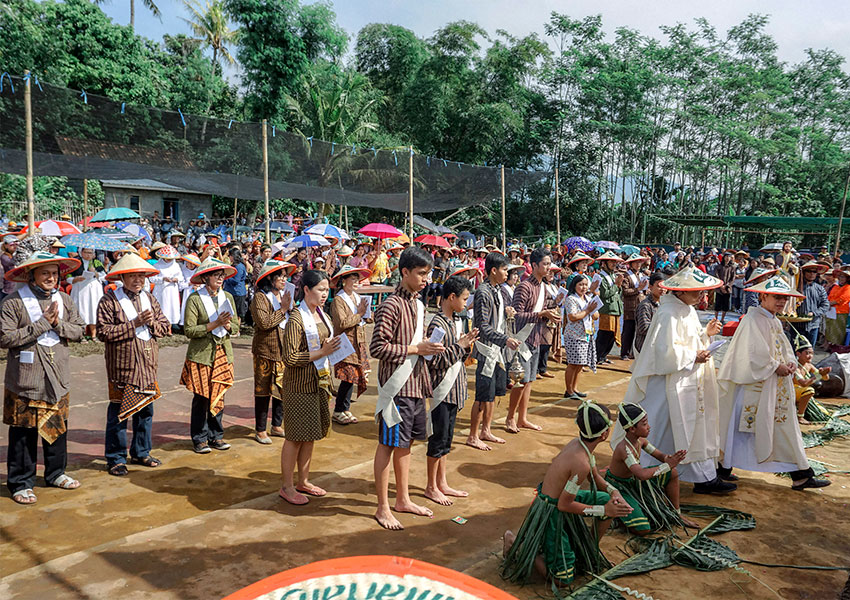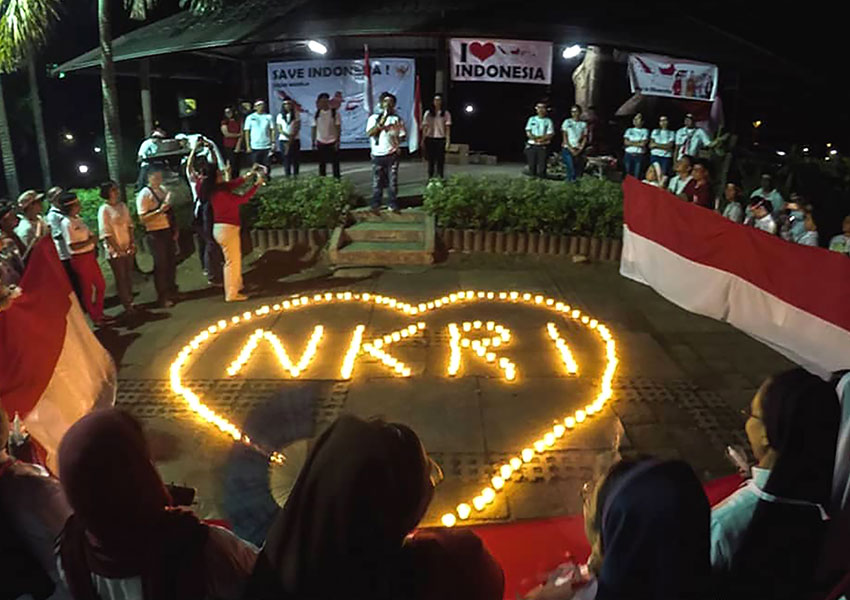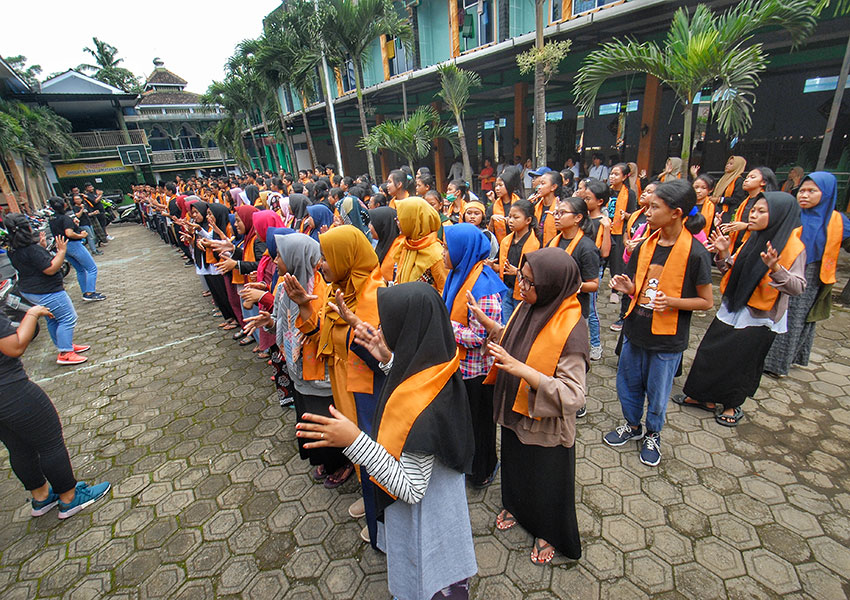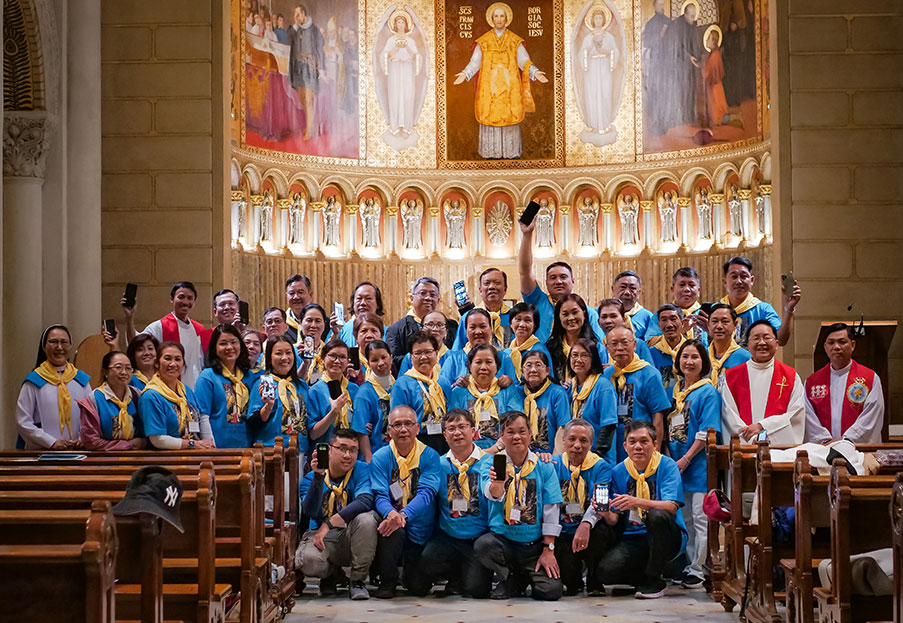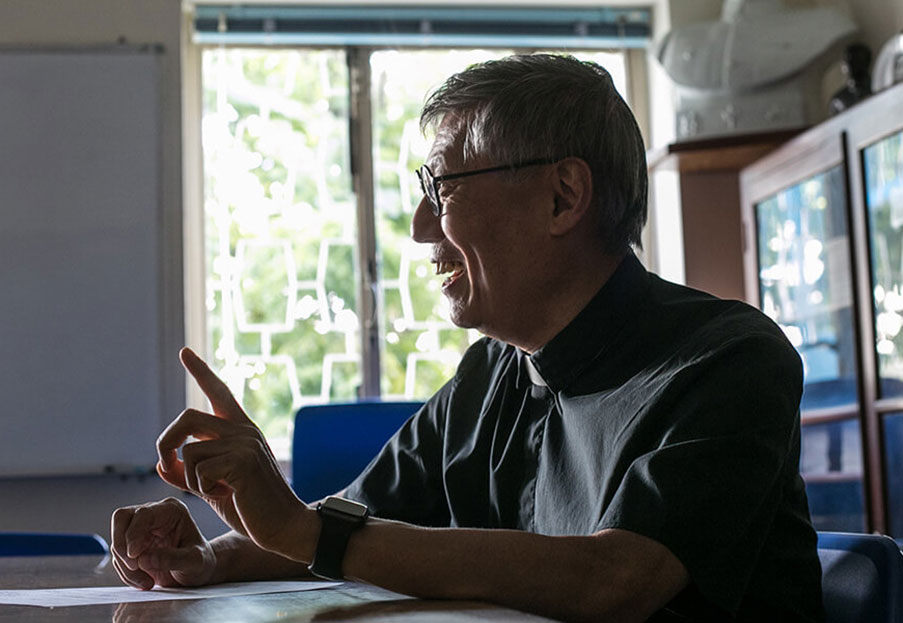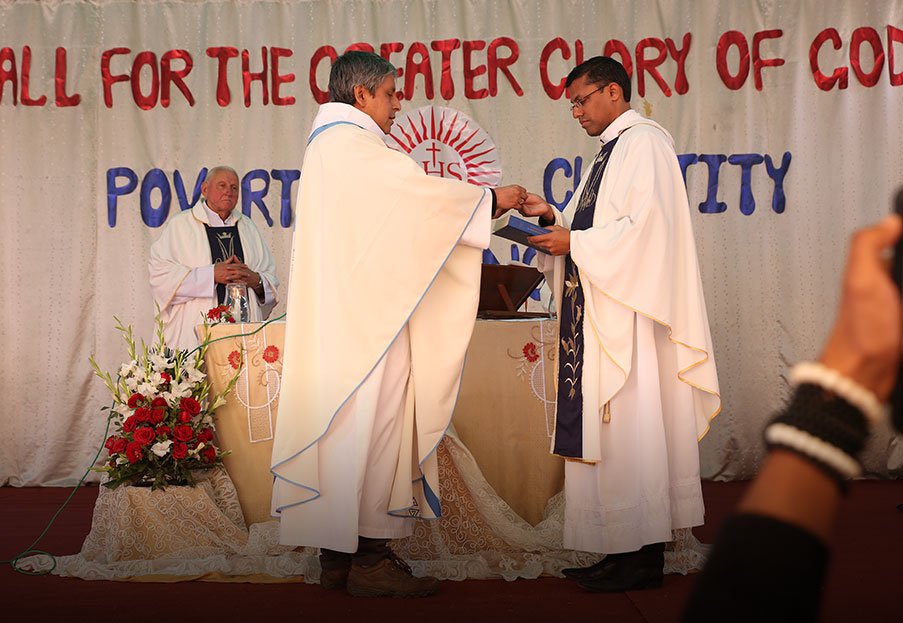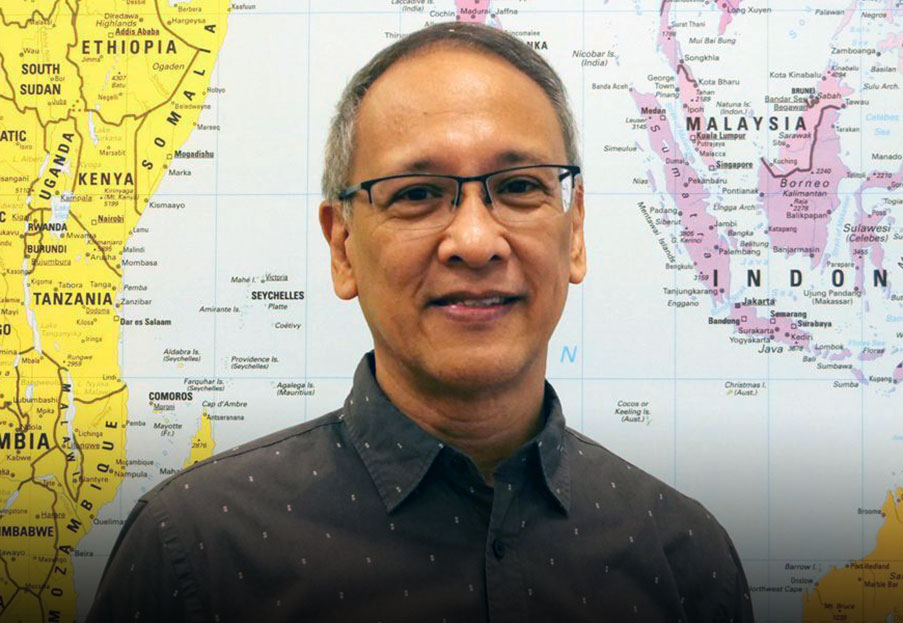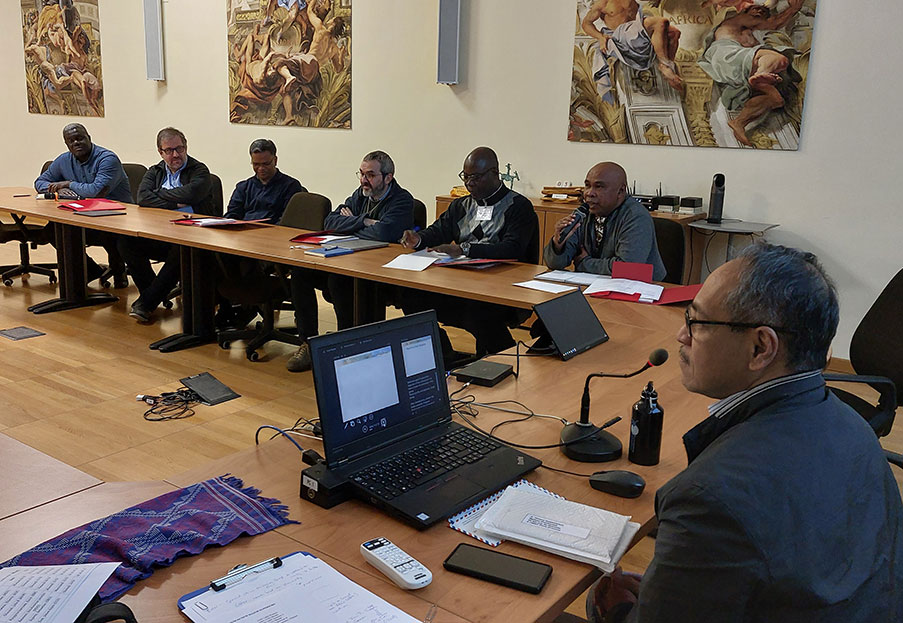Engaging diversity, generating new stories: the Jesuits and youths in Indonesia
By the Jesuit Communications Team, Province of Indonesia
[From "Jesuits 2021 - The Society of Jesus in the world"]
“I am going to break fast at the church,” says Eli Yudoyono, a Muslim who leads a local neighbourhood in Semarang, Central Java. In the evening, along with many other Muslims, he attended an annual event organised by the Jesuits during every Ramadan at St. Theresia Parish in Bongsari, Semarang. The parish priest, Fr. Eduardus Didik Chahyono, worked with the parishioners to provide their Muslin guests with iftars, the meal taken by Muslims at sundown to break the daily fast during Ramadan. Warmth and hope filled the atmosphere of the room as Muslims and Catholics sat side by side, eating together and sharing stories.
During Ramadan, similar events can easily be found
across Jesuit works in Indonesia. Aloysius Adi, a member of the youth ministry
at another Jesuit parish, St. Yusuf in Ambarawa, Central Java, sees such events
as a genuine expression of faith. For him, “Organising a social event with
other religious groups, such as inviting Muslims over for breaking fast, is not
merely an expression of respect for others, but also a way of celebrating the
diversity which God has presented as a gift for all of mankind.”
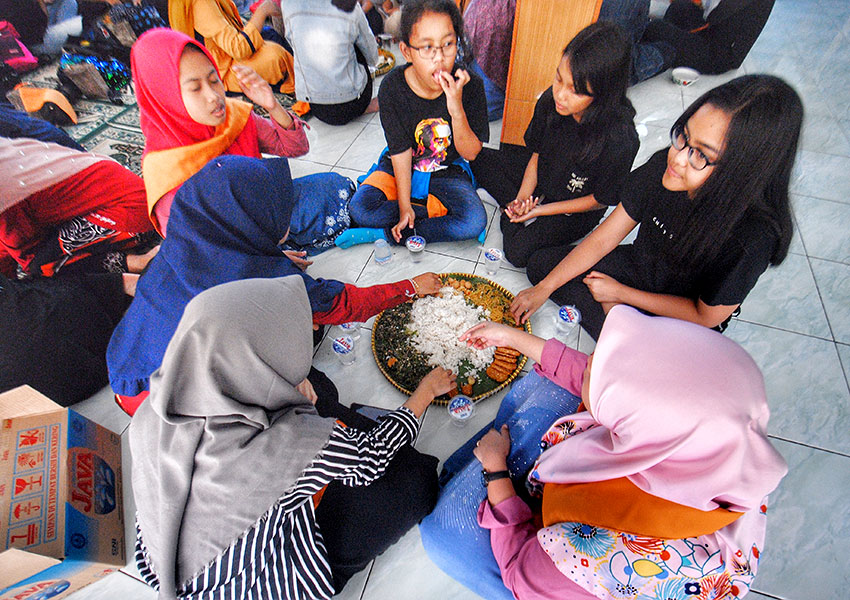
For Indonesian Jesuits and their collaborators, this precious yet fragile gift of diversity has always been an existential thread in their personal narratives, as well as apostolic works. In a time when intolerance and division is often flamed for political gains, Jesuit works in Indonesia continue to provide inclusive spaces in which differences are not only welcomed, but also celebrated. Every so often, the warm welcome and the experience of encountering diversity in our Jesuit institutions lead to transformations.
At Sanata Dharma University, the Jesuit university in Yogyakarta, its 12,000 students come from almost every province in Indonesia’s vast archipelago. As part of their formation, they are frequently asked to reflect upon their experiences of encountering people from different religious traditions and cultures. At first, many find it intimidating. After the university’s orientation week, however, their perceptions began to change. Instead of fear, they see beauty.
Anak Agung Istri Sari Ning Gayatri, a Hindu student
from Bali, shared her reflection. “I have only been at Sanata Dharma for around
three months. But I have fallen in love with this university. I am in love with
its tolerant atmosphere that shines bright like a jewel on a crown. I am in
love with the way its people treat diversity as a precious treasure. For me,
Sanata Dharma is a reflection of Indonesia. Different ethnicities, religions,
races, cultures, and traditions are everywhere. There is tolerance all around
the campus.”
These stories shed light on how to allow the third Universal Apostolic Preference (UAP) to flourish in Indonesia. To accompany young people in the creation of a hope-filled future is a call to become what Pope Francis refers as “custodians of wonders.” In Indonesia, one of the wonders is precisely how the creative spirit of God continues to gather people from diverse religious and cultural backgrounds to share the gift of life. For this sense of wonder to blossom, our ministries also need to show that the way to God (the first UAP) can at times requires us to embrace “the religious others”.
The call of the UAPs requests that we help young
people to discern, so that stories of differences may be gazed at as stories of
God’s own boundless diversities. Experiences teach us that by providing spaces
for young people from different religious backgrounds to enter into respectful
conversations, we can help them to grow in their knowledge of God. They become
exposed to new stories, which will allow the eyes of their hearts to see that
the rich tapestry of our common humanity is all the more beautiful when
diversity is embraced. Such stories allow hope to grow, and on several
occasions, they lead to the birth of common initiatives to walk with the poor
and the marginalised or to protect the earth.
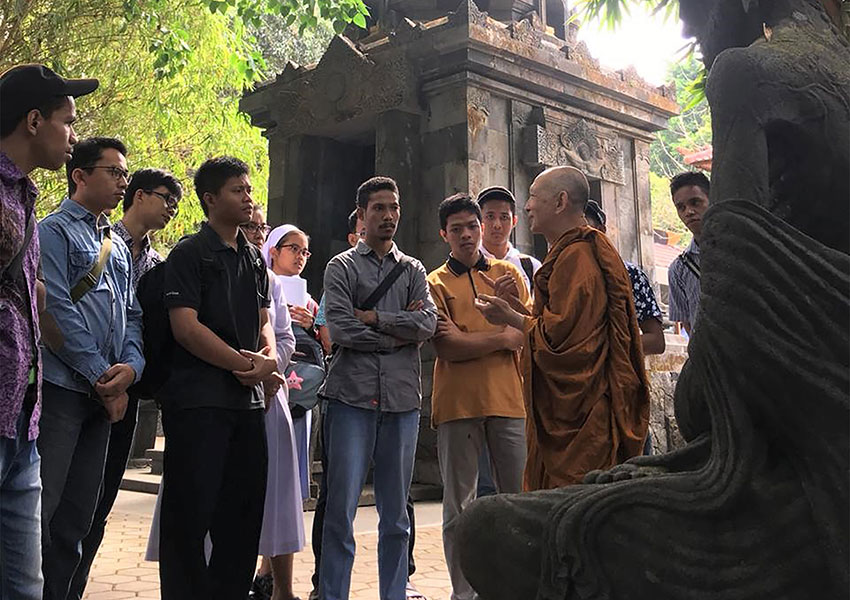
As young people all over the world begin to rise to the challenge and present themselves as champions of environmental issues, the youth in Indonesia are hearing the call to immerse themselves in the same direction. Due to their familiarity with various digital platforms, they can see borders as pathways. With their youthful dynamism, they join their peer in promoting stories that foster unity amidst diversities, solidarity with the poor and the marginalised, as well solidarity for the care for the environment. As their stories spread, their lifestyles change.
The UAPs are rooted in the challenges of the
present. They have become a call to the whole Society of Jesus to discern God’s
presence in a world marred by so many worries. God’s vibrant presence, however,
allows us that hope can always become the more dominant narrative. As Jesuits
in Indonesia and their collaborators walk in paths set out by the UAPs, new
stories of hope continue to emerge and bring about transformations. Such
stories are the ones we create together.
